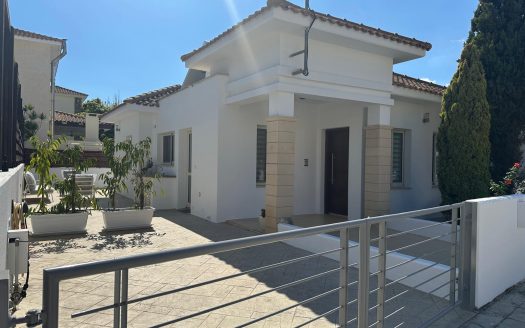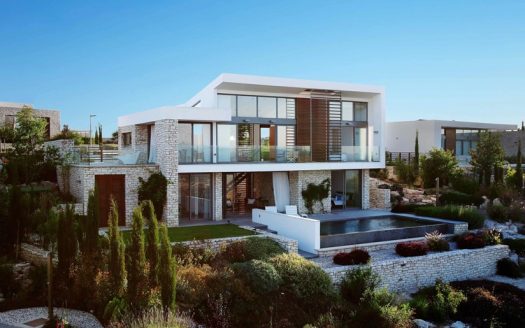Smarter Living, Lower Bills: Energy-Savvy Upgrades Redefining Cyprus Homes
Cyprus is blessed with abundant sunshine, yet its household energy bills have climbed steadily over the past decade. Electricity tariffs rose again in early 2024, prompting many owners and buyers to look beyond the aesthetics of a tiled roof or a sea-view balcony and ask whether a property will cost a fortune to run. At the same time the government, following European Union directives, now expects newly constructed dwellings to meet the “nearly zero-energy building” (NZEB) standard.
Regulation is raising the bar
Since January 2021, every planning permit for a new home must demonstrate compliance with Cyprus’s NZEB rules. In practice this means excellent insulation, airtight windows, and renewable sources covering a significant share of annual demand. Owners who carry out major renovations must also upgrade to Energy Performance Certificate (EPC) class B or better. While the paperwork may feel burdensome, the long-term benefit shows up in lower energy bills and a higher resale value. Buyers scrolling through listings such as house in Cyprus for sale increasingly filter by EPC rating before booking a viewing, an early sign that energy efficiency is becoming a market differentiator.
Smart features that make the difference
1. Photovoltaic arrays with net metering
A small, roof-mounted solar-PV system can supply most of a typical family’s daytime consumption. Under the net-metering scheme, excess generation spins the meter backwards and credits the owner at retail tariff rates, wiping out a large share of the monthly bill. The 2024–25 grant programme offers up to €1,000 per installed kilowatt, plus a €750 bonus when PV panels are combined with roof insulation.
2. Solar hot-water cylinders
Long before PV became affordable, Cypriots relied on rooftop collectors for domestic hot water. Modern evacuated-tube systems deliver usable heat even on hazy winter days and slash immersion-heater running time. When paired with a smart controller, the pump activates only when the collector will outperform the backup element, preserving both comfort and efficiency.
3. Smart thermostats and zoned controls
Traditional split-unit air conditioners cool the whole living area even if only one person is home. Smart thermostats learn occupancy patterns and climate preferences, switching individual units on just long enough to hit the set temperature. Geofencing cuts waste further: once the last phone leaves the Wi-Fi network, the system slips into eco-mode. In practice households report savings of 15–20 per cent without feeling a drop in comfort.
4. Demand-response-ready appliances
The national grid operator already sends price signals to large commercial users, and pilot schemes for homes are under way. A dishwasher or storage heater that can postpone its cycle by an hour when renewable output peaks earns a small credit on the bill and helps the island integrate more solar and wind power. Builders now promote such demand-response readiness as part of the sales pitch for new developments of Cyprus houses for sale.
5. Smart lighting and shading
LED down-lights linked to daylight sensors dim automatically in the bright Cypriot sun, while motorised shutters stop the afternoon glare before it heats up interior walls. Although each device saves only a few watts, the collective impact is noticeable in EPC calculations and everyday comfort.
The financial case stacks up
A common fear is that advanced systems inflate construction budgets. Yet material costs have declined sharply: poly-crystalline PV modules sell for under €0.25 per watt in bulk, smart thermostats start at €80, and phase-change insulation panels are appearing in local hardware stores. Add the grants mentioned earlier and the payback period falls to five or six years, faster if electricity prices keep tracking wholesale gas. Real estate adverts reading houses for sale Cyprus now usually highlight “Class A Energy” and “Smart-Home-Ready” alongside pool size.
Existing owners can stage upgrades to suit their budget. Swapping halogen bulbs for LEDs, sealing window frames, and installing a learning thermostat cost a few hundred euros and trim the next bill straight away. Larger investments such as PV or heat-pump retrofits follow once savings have accrued. That staged pathway appeals to families weighing whether to buy house in Cyprus now and renovate gradually rather than wait for a turn-key build.
Grants and guidance
The Ministry of Energy, Commerce and Industry publishes clear criteria for each subsidy band and keeps an updated list of certified installers. Vulnerable households enjoy higher caps, while properties in mountainous areas receive additional support recognising the harsher winter conditions. Applicants upload invoices and photographs via a streamlined portal; approvals typically arrive within six weeks. The programme’s popularity means budgets can run dry late in the calendar year, so owners planning roof work should get quotes early.
Financing options have improved too. Several banks offer “green mortgages” with a modest interest discount for Class A dwellings. Developers keen to move stock of Cyprus homes for sale sometimes include a basic solar package in the price, sweetening the deal without eroding margins thanks to economies of scale. For buyers who prefer to buy homes in Cyprus off-plan, inserting energy-efficiency clauses into the contract ensures the promised performance is delivered, not value-engineered away during construction.
A shift that is here to stay
Energy-efficient design is no longer a lifestyle choice for the environmentally minded few. It is written into building law, supported by grants, and demanded by buyers who refuse to bankroll wasteful design. Estate agents confirm that a Class A rating can bump the final sale price by three to five per cent, offsetting much of the initial outlay. Even landlords see advantages: tenants stay longer in comfortable, affordable properties, reducing vacancy periods.
Here’s a comprehensive guide for foreign investors looking to buy a property in Limassol.
The story of Cyprus’s housing market over the next decade will not be limited to location and view. It will be about smart meters that talk to the grid, panels that quietly earn a return on a scorching afternoon, and walls that keep the heat where it belongs. The quickest to adapt—whether homeowner, developer, or investor—stand to benefit most as energy-savvy living becomes the new normal across the island’s vibrant property scene.




